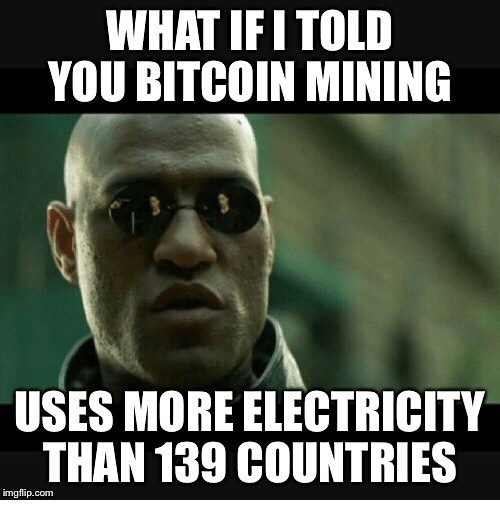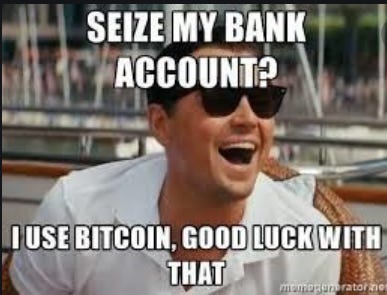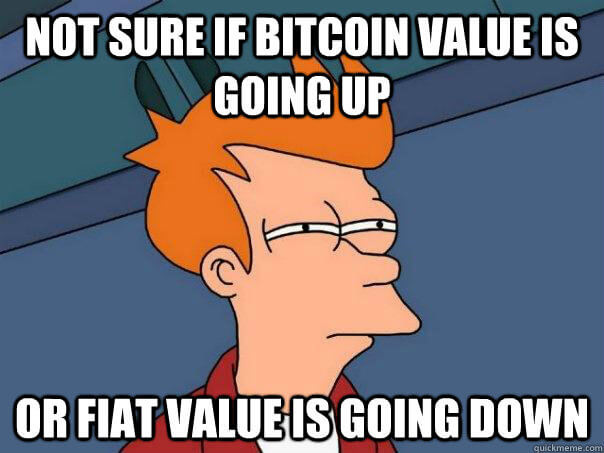Bitcoin or Bit Con?
February 25, 2021
Bitcoin is a cult, not a currency, and is not a physical coin. I don’t invest in anything I don’t understand and this vehicle is a doozy: Each Bitcoin is basically a computer file with an e-code that can be stored in a “digital wallet” app on a smartphone or computer and is only accessible via a torturously long password. If you’re inclined to mislay your keys or suffer from memory lapses, then Bitcoin isn’t for you. Roughly 20 percent of Bitcoin, that has been purchased and locked away, is inaccessible to owners because they forgot their keys. These lapses total tens of billions of dollars.
And other hazards to ownership exist. There are plenty of questionable exchanges or funds promoting themselves aggressively by offering to buy Bitcoin on your behalf that don’t. But if you actually buy a Bitcoin, or a piece of one through a bona fide fund, its price capriciousness is unsettling, easily triggered by Tweets from Tesla’s Elon Musk and frothy stock markets. This year’s market madness, and worries about government spending, have contributed to the tsunami of money that pours into Bitcoin, a total so far of around $1 trillion based on a price of $50,000 per Bitcoin. This phenomenon has not only turned the heads of the media, but also the heads of otherwise sensible investors, bankers, university endowment funds, pensions, and governments who actually regard Bitcoin as a legitimate asset class, without a single shred of justification.
“It’s a colossal pump-and-dump scheme, the likes of which the world has never seen,” wrote PayPal founder Bill Harris in 2018. “Cryptocurrency is best-suited for one use: Criminal activity. Because transactions can be anonymous — law enforcement cannot easily trace who buys and sells — its use is dominated by illegal endeavors…Bitcoin is a scam.”
I do not agree that it’s an outright scam, but what is it? A secret parking lot for money launderers and tax evaders? The next Tulip Mania of 1637 which brought down the Dutch Golden Age? Or is it, as Elon Musk and others believe, a rival to gold, as a store of value, and to cash, as a medium of exchange.
I think not because here’s how it works: If you buy Bitcoin from a legitimate exchange, you can store it in your “digital wallet” or send it to other digital wallets or people. Each transaction is recorded in a public list, called the blockchain, with owners’ identities hidden by encryption. Bitcoin is “governed” by a 2009 protocol that there can only ever be 21 million Bitcoins. Currently, there are 18.5 million in existence, but new ones can be created in a process called “mining” — done in large-scale crypto “mines” that consist of rows of linked-up computers that devour massive amounts of electricity. It takes two years to make a single Bitcoin because of the computation required in order to make sure that each file cannot be hacked or counterfeited, and that ownership is protected.
Even weirder is the fact that as much electricity goes into “mining” a single Bitcoin as it takes to power an average American household for two years -- an environmental blemish that makes the endorsement of Bitcoin by Elon “Mr. Electric Vehicle” Musk very puzzling.
What’s also head-scratching is that the 21-million limit on Bitcoin may be a comfort, like buying a stock or unit in a public company that has a finite number of shares outstanding. But the catch is, there is no oversight or regulation to ensure that’s the case when it comes to Bitcoin. A flood of these things could suddenly appear, reducing the value of all Bitcoins. To me, the 21-million limit is about as ironclad as a Bernie Madoff promise.
Also nonsensical are the claims by Bitcoin fans that it is a currency or a store of value superior to gold. If it was so decreed, Bitcoin would be the currency from Hell, veering so wildly in value that by the time a price in Bitcoin was agreed upon it would be out of date. Nobody in his or her right mind would lend or borrow in Bitcoin for the same reason. As for replacing gold, the precious metal’s shifts in price are due to supply and demand. Gold is physically scarce and difficult to find or mine which is why it has remained a relatively stable store of value for centuries.
Even so, against better judgment, Bitcoin remains the sexiest “investment” story around precisely because it is unstable and not investment-grade. The mouth-watering reality is that if you picked up 10,000 Bitcoins for $40 in 2010, you’d be worth $460 million or so today. Of course, no one did and there has been mostly carnage along the way as prices yo-yo wildly and people lose their keys. That’s why it’s unimaginable that an investment advisor or portfolio manager or banker would put other peoples’ money into this fray. Consider the latest run-up in price.
In January, Elon Musk -- whose Tweets about markets are as notorious and loopy as were Trump’s Tweets on politics -- launched the latest Bitcoin flurry. Musk has 44 million Twitter followers and has had run-ins with securities officials in court over Tweets about Tesla in 2018 and 2019. More recently, he led the flood of buying into GameStop, in the name of getting even with the type of short-sellers who had dogged Tesla for ages. That ended in tears, lawsuits, and a Congressional hearing.
This time, on January 29, Elon merely added “#bitcoin” to the bio description at the top of his Twitter page and sparked frenzied buying among the geekdom and they promptly traded Bitcoin and took it from $32,000 to $38,000. Then, on February 8, Tesla announced, in a Securities and Exchange Commission filing, it had bought $1.5 billion in Bitcoin and hoped to accept it as payment for its products. Prices surged to $44,200 immediately, reached $58,000, then fell back to $47,700 after Musk was quoted as saying prices “seemed high”. It’s fallen further to $45,000, along with Tesla stock.
How can such a moving target be a store of value for widows and orphans? Or for university donations or a bank or for anyone? It seems to me if a rich guy with a twitchy Twitter finger can cause Bitcoin prices to veer like a weathervane in a tornado, then it’s time that the cavalry was summoned to protect the public from itself. Bitcoin is bad enough, in this regard, but consider the unregulated 5,000 other cryptocurrencies out there that can be easily manipulated to prey on the public.
New U.S. Treasury Secretary Janet Yellen is hinting about Bitcoin rules to “protect consumers”. Restrictions already exist to protect Americans from buying most of this junk, but there are loopholes galore. There should also be restrictions on shills like the Winklevoss twins, who lost Facebook to Mark Zuckerberg, and hold a pile of cryptocurrencies and Bitcoin which they estimate will hit a price of $500,000 by 2030; or Citibank’s Thomas Fitzpatrick, global head of market insights, whose leaked report predicted $318,000 by 2022. His reason was that Bitcoin, like gold, will surge in value as governments crank up the printing presses since COVID-19, thus diminishing the value of paper money.
The bottom line is that Bitcoin has no intrinsic value. It surfs alongside stock markets and headlines; its so-called finite supply is neither regulated nor enforceable; its mining process is environmentally damaging; its price is jittery and easily influenced; its anonymity enables money laundering and tax evasion; and its value is only worth what the last guy paid for it, whoever that was. It doesn’t create jobs or products or innovation or economic wealth nor does it protect people from currency debasement. To me, it’s nothing more than greed with a bar code.
My newsletters will arrive in your inbox Monday and Thursday mornings, sometimes more often.







It is a vital tool for criminals, terror organizations and Bitcoin promoters.I would consider Bitcoin ownership a ‘tell’ of criminal activity.
Thanks Diane, THIS is an AMAZING post. You teased out, clearly and brilliantly, all the unsettling questions. I've been afraid to admit all those confusions and suspicions.